

2025 New Employee Survey: Retail Sector Sees Shift in Career Aspirations
2025 New Employee Survey: Insights into the Retail Sector
The ALL DIFFERENT Inc. and Learning Innovation Research Institute recently conducted a comprehensive survey targeting new employees in the retail sector, specifically from March 25 to April 24, 2025. This research focuses on uncovering the attitudes and expectations of new recruits entering the wholesale and retail industries amidst various operational challenges.
Overview of Industry Challenges
The retail sector faces several pressing issues, such as labor shortages, rising costs, adaptation to the '2025 cliff,' and the need for digital transformation (DX) and green transformation (GX). Compounding these challenges, businesses must also contend with increasingly diverse customer needs and preferences, which complicates work processes. Many companies are responding to these shifts by undertaking significant HR reforms.
Particularly within the retail sector, the turnover rate among new and younger employees is alarmingly high, prompting companies to focus on strategies to retain these workers. To ensure that new hires are retained and can develop within the company, it is crucial to foster appropriate training systems and understand their values and expectations.
Key Findings from the Survey
1. Shift from Career Ambition to Enjoying Work
One of the striking revelations from the survey is that, for the first time in seven years, the percentage of respondents indicating a lack of career ambition (28.2%) surpassed those aspiring to managerial roles (27.9%). This marks a significant cultural shift among new retail employees, with many prioritizing enjoyment in their current roles over career advancement.
2. High Willingness to Stay with Current Employers
A notable 72.5% of new recruits expressed a desire to continue working with their current company, the highest percentage recorded over the seven-year history of this survey. Only 10.7% indicated they might seek employment elsewhere, which is comparatively lower than other sectors.
3. Priority on Workplace Relationships
Respondents identified positive workplace relationships as the most significant factor for staying at their company, with 69.5% emphasizing its importance. Competitive salaries also ranked high, with 64.9% deeming it essential.
4. Desire for Work-Life Balance
When asked about their future work-life balance, 50% of participants indicated a preference for leaving work on time, surpassing other sectors by 5.8 points. Only 7.6% wished to work more in pursuit of professional growth.
5. Prioritization of Personal Time
Among those in the 20s, the survey indicated a strong preference for work-life balance, with 30.2% prioritizing both work and personal lives, and 24.4% opting for personal time above all. This perspective suggests a cultural shift towards valuing personal well-being over career advancements.
6. Evolving Perceptions of Leadership
Interestingly, new employees in the retail sector view leadership through a lens that demands both strong leadership and determination, with 55.0% believing that effective leadership will be required in their future roles, illustrating an expectation of robust leadership amidst the challenges faced by the industry.
Conclusion
As we emphasize the importance of career aspirations, the significant increase in the desire to remain with current employers suggests an emerging trend of stability over ambition among new retail employees. Nonetheless, the decline in career-focused aspirations raises concerns regarding long-term growth and leadership supply.
With complexities increasing in logistics and customer needs, developing adaptable leaders will be crucial for the industry's future success. Retail companies must actively articulate clear career paths, foster individual growth, and provide structured on-the-job training to prepare the next generation of industry leaders. Furthermore, cultivating essential skills, including communication and adaptability, remains a priority to ensure that new employees can navigate the evolving demands of both consumers and the marketplace.
In summary, the survey provides valuable insight into the evolving mindset of new employees in the retail sector. While their desire for enjoyable work environments and strong interpersonal relationships is evident, companies must balance this with the need for career development and leadership training to cultivate a robust workforce for the future.

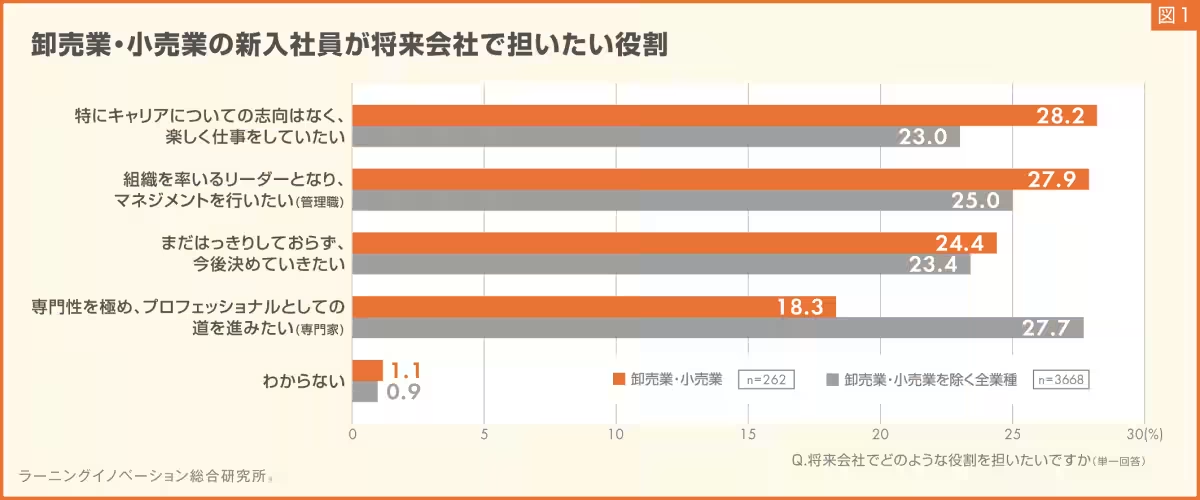
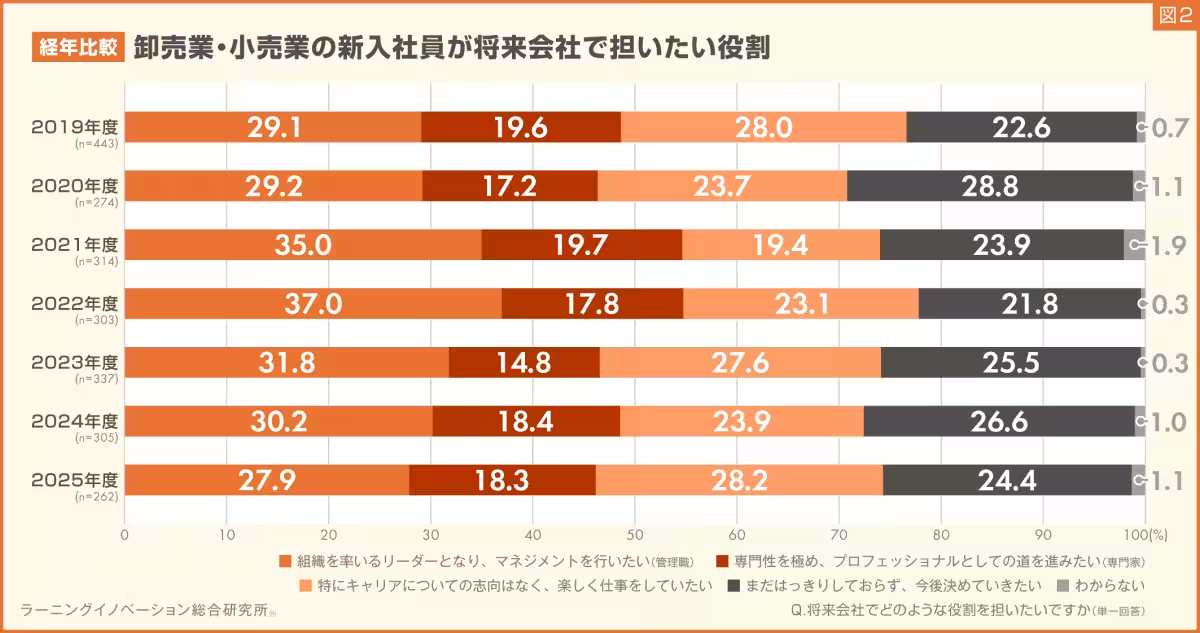
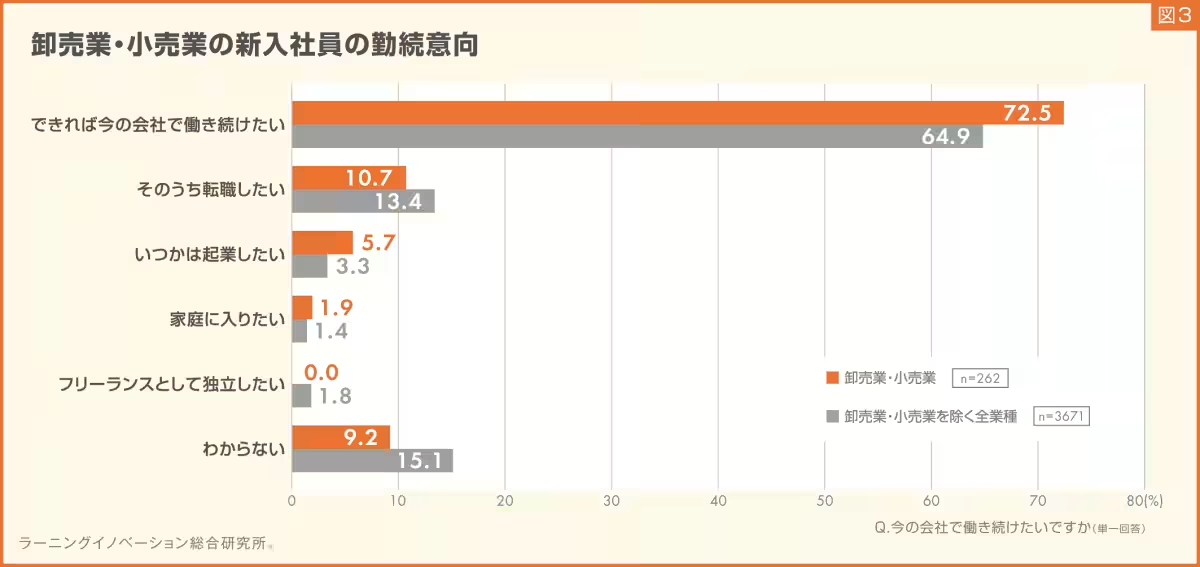
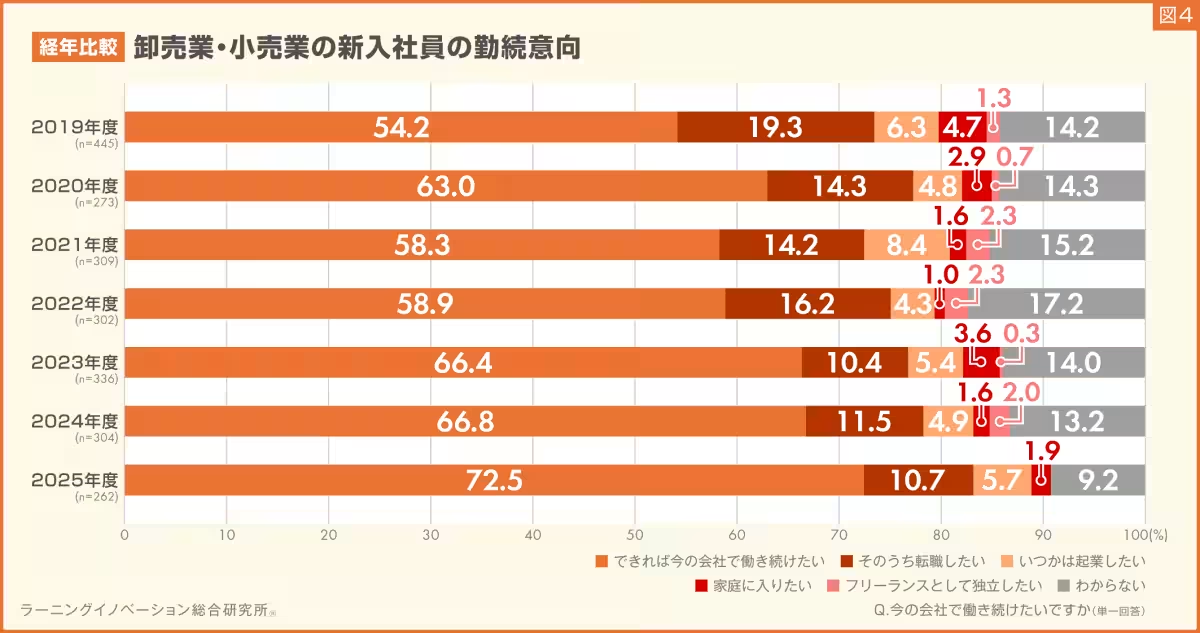
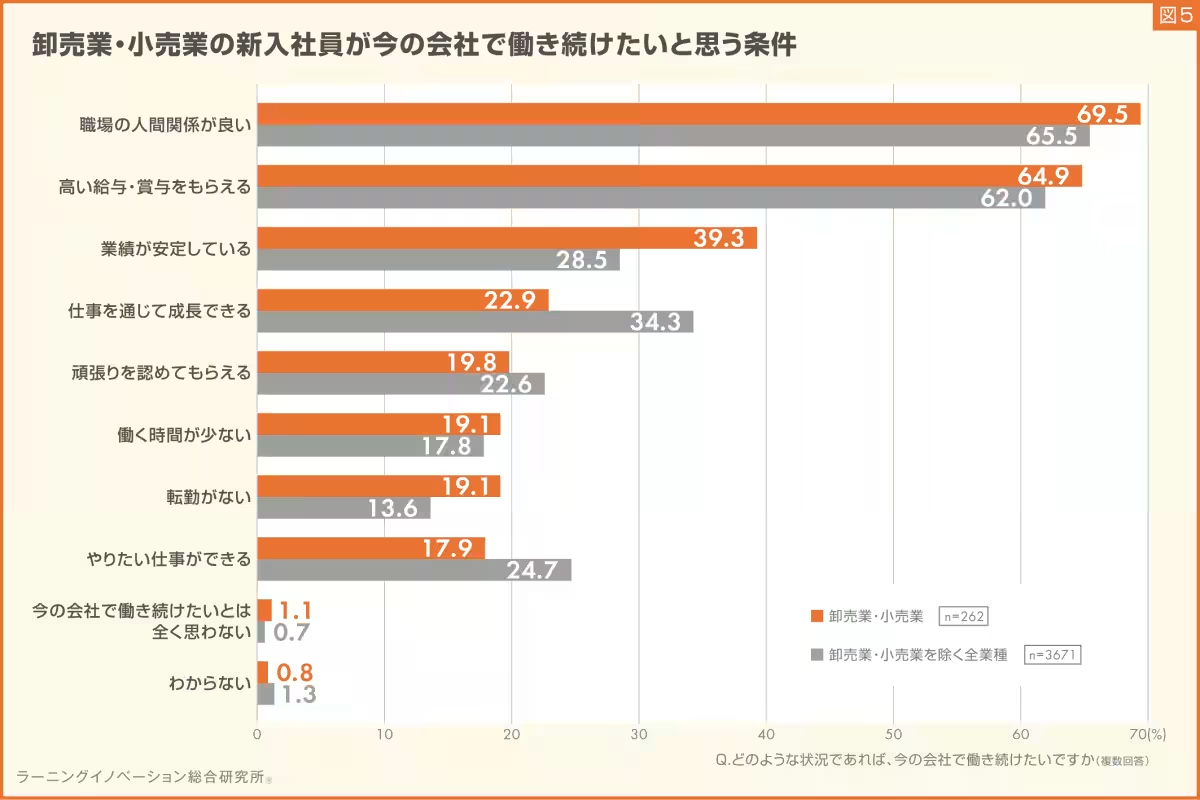
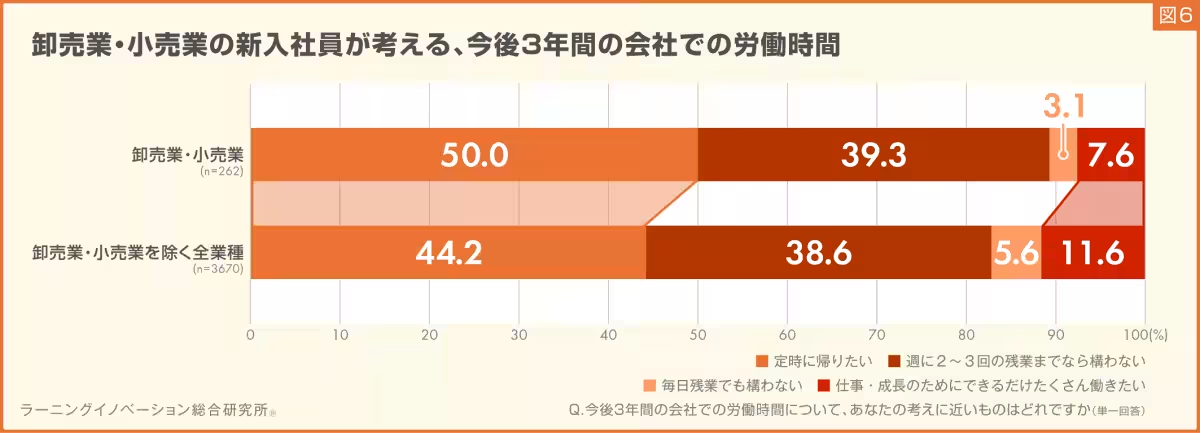
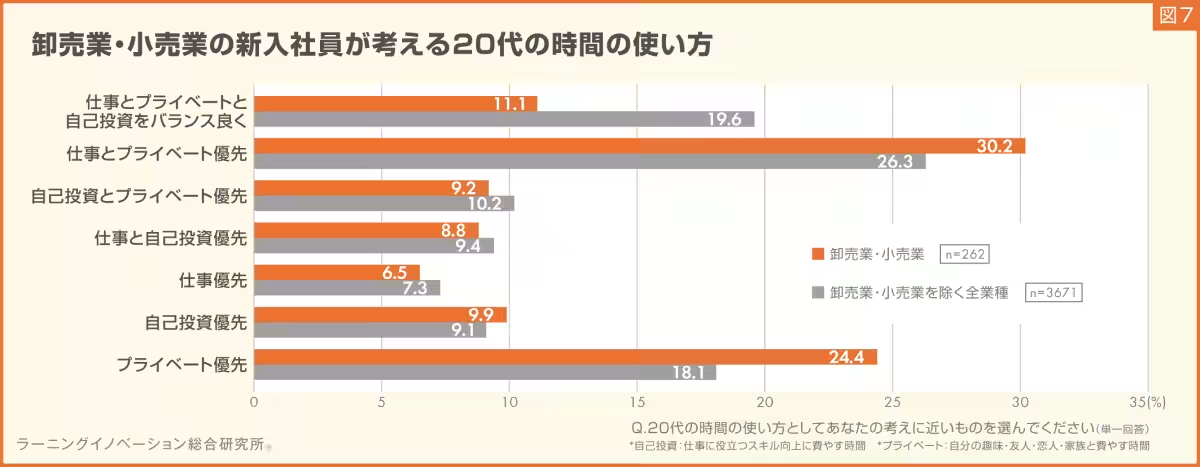
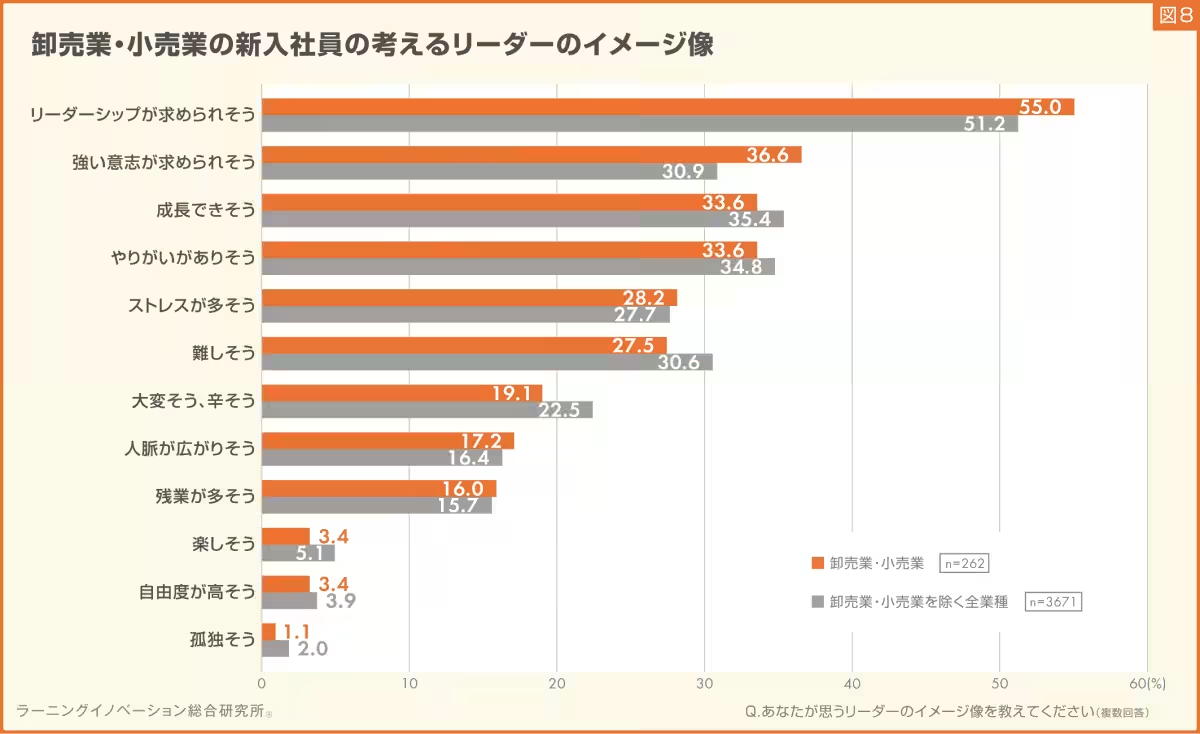

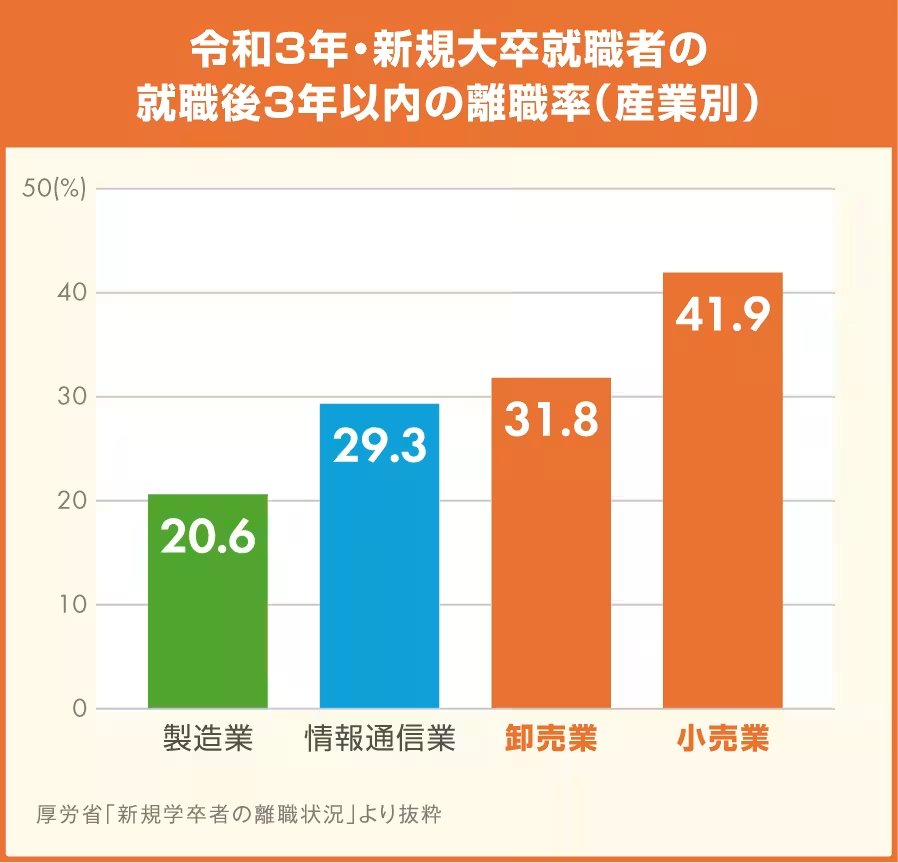

Topics People & Culture)










【About Using Articles】
You can freely use the title and article content by linking to the page where the article is posted.
※ Images cannot be used.
【About Links】
Links are free to use.